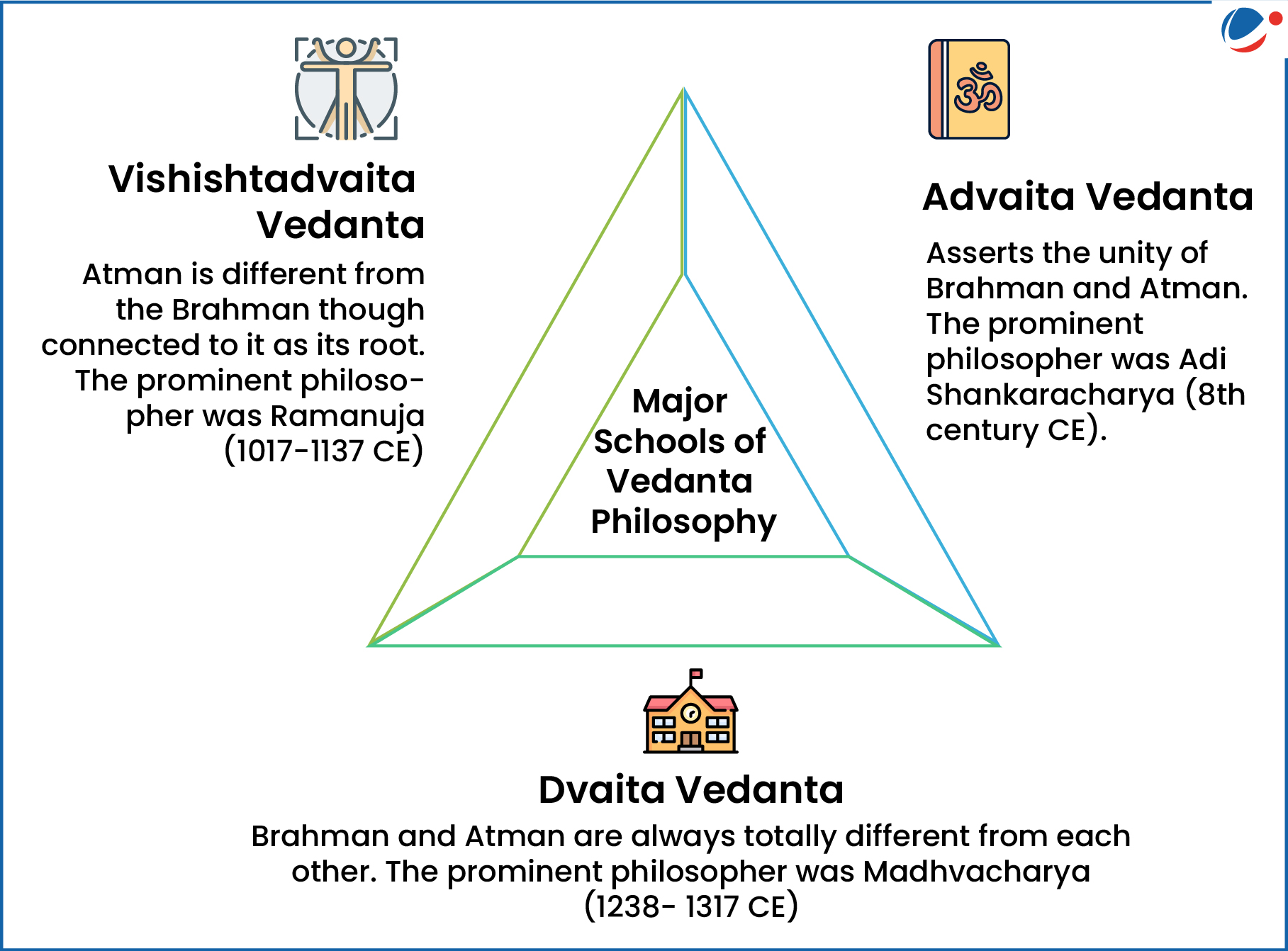The theme of the conference was "Re-imagining Vedāntic World Order" reflecting contemporary relevance of Vedanta.

About Vedant Philosophy
- Meaning: Vedanta means "the end of the Vedas," originally referring to the Upanishads, the concluding parts of the Vedic texts.
- However, it also includes various interpretations of the Upanishads.
- Philosophy: Vedanta, the Uttara-Mimāṁsā philosophical thought, addresses profound questions like :
- ‘Who am I?’,
- ‘What is this Universe?’
- ‘How am I related to the Universe?’
- Key components: There are three main concepts in Vedanta:
- Brahman: The ultimate reality.
- Atman: The individual souls.
- Prakriti: The physical world.
- Swami Vivekananda introduced Vedanta to the West at the 1893 Chicago Parliament of Religions.
Contemporary Relevance of Vedanta
- Democracy and Pluralism: Vedanta’s principle, "Truth is one, but the wise express it differently," champions pluralism, coexistence, and dialogue.
- Oneness of Existence: Advocates global harmony through Vasudhaiva Kutumbakam ("The world is one family") of Maha Upanishad.
- Addressing Climate Change: Promotes sustainable living through the principle of unity with nature.





